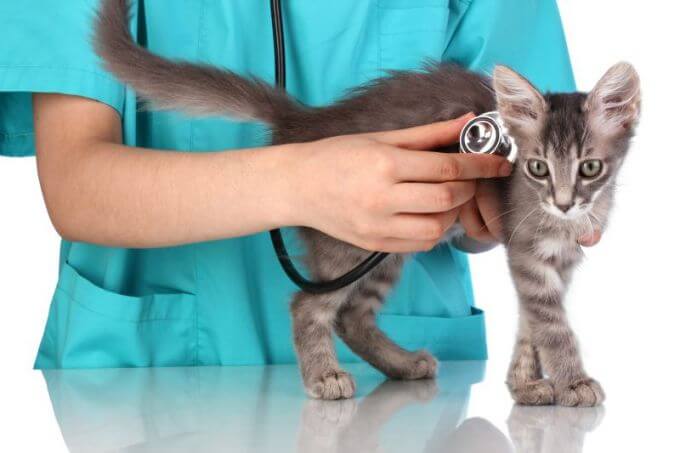
Quick Overview: Fading Kitten Syndrome






Fading kitten syndrome (FKS) is a condition that anyone who has bred kittens will be aware of. However, it is not a specific illness in the usual sense. Rather, there are a number of different conditions that can each result in a similar pattern of signs of illness in kittens.
In general, FKS describes any situation where one or more kittens in a litter between birth and three months of age falls ill or dies. The first week of life is the main period of concern, and the period up to weaning (at around 3-4 weeks of age) is the second most critical time. An entire litter of kittens may be affected.
Causes of Fading Kitten Syndrome
Fading kitten syndrome has many possible causes, including:
- Maternal issues: There are a number of ways that the mother can contribute to a kitten “fading,” including dystocia (difficult birth), poor milk supply, poor mothering ability or direct trauma by a mother to her kittens.
- Congenital defects: Some kittens are born with anatomical anomalies that are incompatible with normal life. This includes cleft palates, internal hernias, heart defects, internal metabolic disorders and abnormalities of the immune system. Kittens may seem initially normal.
- Environmental issues: If the surrounding conditions of young kittens are not ideal, this can lead to poor health that results in fading. Temperature (too high or too low), excessive humidity, too much stress (e.g. over-handling of kittens by owners or visitors, or too much noise), are all possible environmental factors.
- Nutritional issues: If kittens are not fed correctly, malnutrition can lead to low blood glucose, weakness, hypothermia, and ultimately, fading.
- Viral infections: Young kittens are often protected from common viral infections by antibodies from their mother’s milk. However, if the mother is unvaccinated, or as maternally-derived antibody levels in their bloodstream drop over time, they may become unprotected until they are vaccinated. A wide number of viral infections can affect a litter of kittens, causing them to “fade” around the same time. Examples include cat flu (herpes virus and calicivirus), feline panleukopenia, feline coronavirus, and feline leukemia virus.
- Bacterial infections: A number of bacterial infections can affect litters of kittens. These include respiratory infections, such as Bordetella bronchiseptica, mycoplasma, Pasteurella, and Streptococcus and gastrointestinal infections such as E Coli, Campylobacter, Enterococcus, and Clostridia, along with a number of other systemic infections that can cause generalized sepsis. Good hygiene in the home, especially in the kittening area and den, are the best way to prevent such problems.
- Parasites: Kittens are commonly infected with roundworms (Toxocara) at birth, or soon after, via their mother’s milk, and these can gather both in the intestines, as well as in the lungs, causing serious illness. A serious flea infestation can suck enough blood from kittens to cause anemia, which can also present as fading kitten syndrome. Other parasites such as protozoa (e.g. Giardia, Toxoplasmosis or Coccidia) can also cause serious illness in a litter of kittens, again presenting as fading kitten syndrome.
- Neonatal isoerythrolysis: This issue relates to the parental blood type. The condition can develop when a blood type A male cat is mated with a blood type B queen. The queen’s colostrum (first milk) will contain high levels of anti-A antibodies, and some of the kittens will have type A blood inherited via their father. When a type A kitten sucks, it will absorb the anti-A antibodies from the queen’s milk, and these will attack the kitten’s blood cells, causing haemolytic anemia.
Symptoms of Fading Kitten Syndrome
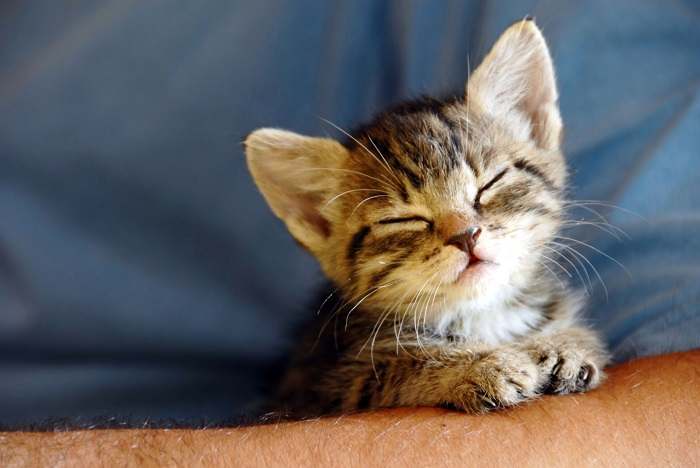
Kittens with FKS are often cold and weak. They may cry or mew or show difficulty in breathing.
The symptoms of FKS may vary depending on the underlying cause. However, regardless of the primary underlying cause, the general process of fading has common characteristics.
These include:
- Falling body temperature (<99F or <37.2C)
- Low blood glucose level due to lack of feeding
- General weakness, lethargy, unresponsive
- Vocalizing – fading kittens may vocalize abnormally, crying or mewing in an unusual way.
- Difficulty breathing or breathing with exaggerated gasps
These symptoms progress to a lack of consciousness. Unless successful intervention takes place, the fading process concludes in the death of the kittens. Identifying the early signs that this syndrome is developing is important so that prompt action can be taken.
Diagnosis of Fading Kitten Syndrome
A veterinarian will make a presumptive diagnosis of fading kitten syndrome based on an examination of the kitten alongside its history.
As with any illness, it’s necessary to carry out an investigation to make a specific diagnosis. This can involve a DVM veterinarian gathering a detailed history from the cat carer, carrying out careful physical examinations of affected kittens to identify common causes, taking samples for laboratory analysis (eg. blood, urine, feces), and ultimately, perhaps carrying out autopsies of kittens that have died.
Treatments for Fading Kitten Syndrome
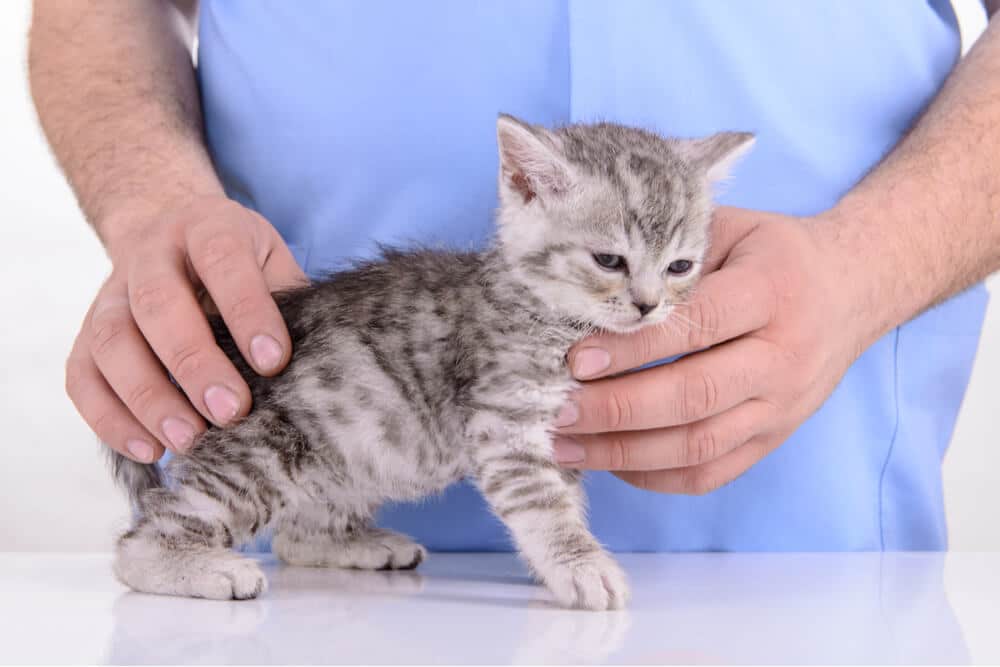
Treating fading kitten syndrome requires a combination of general supportive treatment and specific treatment of the syndrome’s underlying cause.
If the specific cause of fading kitten syndrome can be identified, then specific treatment can be given (e.g. antibiotics for a bacterial infection, anti-parasite medication for worms or fleas, etc). However as well as this, there are general supportive treatments that are likely to be needed for all cases of fading kitten syndrome.
Nutrition
Newborn kittens have very low body reserves to supply them with the energy that they need, so ongoing nutrition is essential, to avoid hypoglycemia (low blood sugar). Cat carers should ensure that queens have a plentiful milk supply, and that kittens are successfully latching on and suckling, resulting in plump, full abdomens.
If there are issues in this area, supplementary feeding should be given using kitten milk formulas or feeding solutions that include dextrose. Fading kittens should be supplemented in this way if there are any suspicions that poor nutrition is an issue. The application of karo syrup to the gums is a simple way of rapidly boosting blood sugar levels in a fading kitten.
Hydration
Dehydration leads to weakness and dullness, and can contribute to fading kitten syndrome, so efforts should be made to ensure that all affected kittens are well hydrated. As well as ensuring that they are drinking plenty of milk, supplementary rehydrating fluids may be offered via a bottle or, under veterinary supervision, by tube feeding.
Warmth
A low body temperature is a key part of fading kitten syndrome. It’s critically important to keep neonatal kittens warm, so extra warmth (e.g. by using heating pads and infra-red lights) is essential in the kittening area, as well as in the first few weeks of life. This is important even for healthy kittens: when fading kitten syndrome has been identified, it is even more important to boost the kittens’ chance of survival.
Prevention of Fading Kitten Syndrome
Risk factors for fading kitten syndrome include inadequate feeding, warmth and exposure to disease early in life. Prevention should be aimed at fostering an optimal environment for neonatal kittens and close monitoring.
- Kittening areas should be kept clean with stringent hygiene measures in place
- Breeders should follow veterinary advice on vaccination and parasite treatments for breeding queens
- Close monitoring of kittens after birth
- Supplemental warmth, feeding and hydration where necessary for all kittens
- Blood testing of parent cats before mating, especially if purebred
Frequently Asked Questions
Can kittens survive fading kitten syndrome?
This depends on the cause. If treatment is given at the first sign of a problem (e.g. identifying and focussing on any kitten that fails to gain weight as fast as the other kittens), then the survival rate can be boosted.
What are the symptoms of fading kitten syndrome?
The four key signs of fading kitten syndrome are low body temperature, lethargy and weakness, abnormal vocalizing and difficulty breathing
What is failure to thrive in kittens?
Failure to thrive means that a kitten is not normally healthy. A healthy kitten should be strong, active, suckling well, and behaving normally. Any kitten that does not fit this description could be said to be “failing to thrive”. Kittens that fail to thrive can go on to develop Fading Kitten Syndrome.
How do you save a dying newborn kitten?
The three key areas are warmth, nutrition, and hydration. The safest option is to rush any dying kitten to your veterinarian so that these aspects can be addressed rapidly and professionally.
How can I save my lethargic kitten?
Veterinary help is essential to ensure that any underlying causes of the lethargy are properly addressed.
Why is my kitten sleeping all day?
Healthy kittens can spend a lot of time sleeping, but this should be interspersed with periods of activity. If a kitten sleeps all the time, it’s safest to have any excessively sleepy kitten checked out properly by a veterinarian.
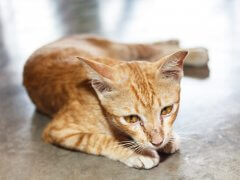
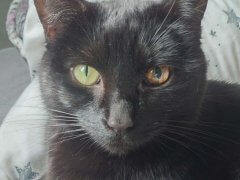
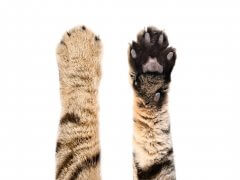
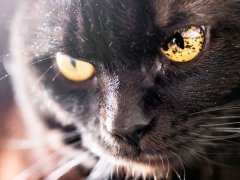
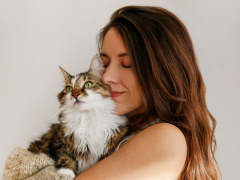
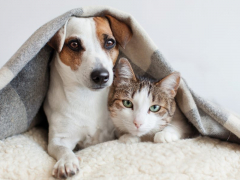

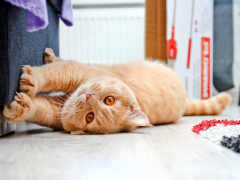
H ello my name is Bohuslav Holaska…Bob….im not veterinary or medical schools student or anything like that but this in box thinking about feeding kittens with ordinnarry food like whiskas gourmet ect….even kitten stufff causes SUDDEN FADING SYNDROME….let me explain….pandas had problem in captivity every newborn panda died like this until one guy realised mothers are not licking for cleaning them,because they licked unly bely front to rear only…..pandas are herbivorous…but mothersmilk is not thats why every 2 hours 2-5 mins of nice massage makes it go to tubes where is finaly digested but until they way certain age it was life neccessary……i was thinking everything what happened before my kittens startes fading until they was not able to walk ,i prayed first of course….but than i started thinking that 3 days maybe 2. before it happened they was eating first time Gourmet which i thought is better than average…..morning they was playing and evening starting fading…….because they are hypercarnivores eating grass only to throw up fur….4,5,6percent of meat in catfood …….makes stomach and tubes of kittens not accepting anything but blood raw meat or mothersmilk….bloodpoisoning of undigested food …….i finaly applyed massages from documentary about pandas and they was turning belly up themselves 5 times over night they was 80-90% dead barely sitting ,every massage gave them imediately feeling use toilet and feed from mother….amazingly fast recovered both in one day they was able move and after three days of this they started playing happy again. and theyre eyes turned yellowish after they digested with help of this massages…i lost several kittens over years and this time no solution was no answer…..love you guys i hope u will try….and ONE MORE IMPORTANT THING START IMMEDIATELY WHEN THIS HAPPENS AND ANY KITTENS …….RAW MEAT…..fish chicken uncooked……this is only think they will eat anyway……i understand few things and mostly…..cats wont buy whiskas or retail they just put it back to litter….they cant digest ashes weeds and 85% is water…..so thet still hungry…..meat 100% energy no shitting2 times day…..
Thanks for sharing your experience and thoughts.
Kittens cannot go bathroom by self. Need to massage tummy with warm water and then use wet cloth to clean anus. Action should be like a mother cat. Watch videos. Having good luck with alternating canned sardines in oil, raw meat cut tiny with milk added on top as if topping. Also try canned salmon with milk on top. Goat milk one cup, with syrup capfull that has corn syrup, with oil about a capfull. one entire egg. Mix all together. Add some water. about 1/3 cup. The syrup gives them the sugar need. The oil helps them poop. Egg has lysine in it and need that for eyes. Alternating fish with the beef. All meals get milk topping. Give the kittens time to eat. When can get to store and buy kitten milk.
Keep warm. Dehydration, warmth, food, and security by touch are necessary for any small growing thing to grow well.
Add liter box, old shoe box with real dirt or sand to help in bathroom habits. Make kitten feel comfortable to go restroom.
Looking at the lysine for the eyes. IF eye not doing well clean, flush with fresh clean water, and give kittens some grated low fat Parmesian cheese. This will help eyes if bulging.
If my kittens died from failing cat syndrome will the second litter pass too
This is unpredictable and it is hard to know. But it would make sense not to breed from the same mother and father cat again, in case there is a possible genetic cause.
Okay so I’m on here and nobody’s grammar is good enough for me to understand what the hell is coming out of yall’s mouth i have a mama cat about 1 yr old who just had five kittens they are 4 days old and already had to bury one and today another these were also the two smallest out of the litter and i knew that it was going to be a challenge to help them survive though i tried everything in my power to try and help from keeping them swaddled in a warm cloth and making sure they were fed and hydrated this is all i could do, putting karo in their mouth in order to spike the blood sugar is probably the best thing you can do next to keeping them swaddled and warm, i wish i had answers and I’m sorry for whoever is going through this but the only thing that you can do is 1: keep it warm via: wrapping it in a cloth or putting a heating pad down 2: making sure its blood glucose levels are adequate by putting karo in its mouth every 3 minutes until showing signs of improvement and finally three: making sure that it is properly nourished with enough fluids to keep it going.
its a process and don’t be mad nor sad that you didn’t do enough, you did everything you can there aren’t many answers nor guidelines for this type of situation these are all that we know we can do.
I am sorry to hear about your loss but it sounds as if you are doing the best that can be done in these difficult circumstances
Hello, I need some advice…Can a cat with FKS eat and gain weight? I have a foster that they thought had FKS but he has gained several ounces in the past few days after originally being somewhat ignored by the mama. On July 1st he was 2 months old weighing 12 ounces, I’ve had him 5 days he’s now 19.2 ounces. He’s also purring, bathing, playing eating, pooping and overall seems very healthy, but can he still all of a sudden die? I’m confused about this. Any help is appreciated. I’m worried about this adorable little Beanie Baby after hearing that they can all of a sudden die. I think he was just malnourished and hungry…another thing I have yet to see a vet so there was no FKS Thank you in advance for any help!
As the article explains, FKS is a syndrome, not a diagnosis, so there are many possible causes. In general, if a kitten is behaving as you describe and putting on weight, then it sounds as if they are getting over the issue, whatever it was. So keep going and don’t worry too much!